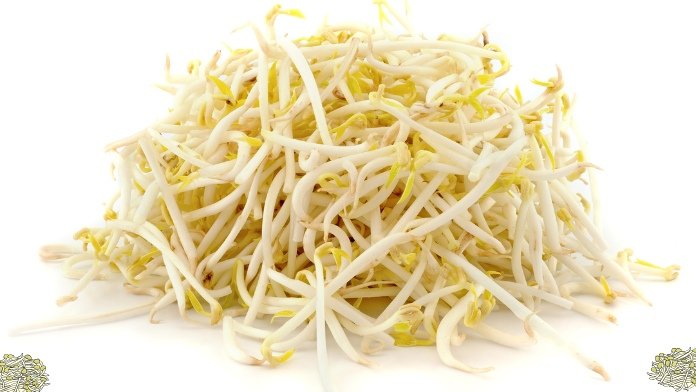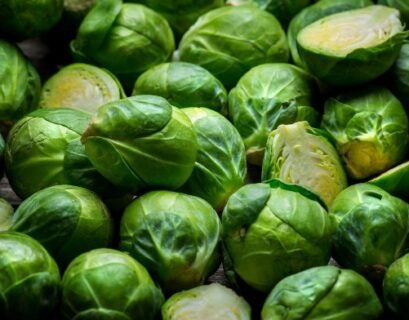White sprouts, a powerhouse of nutrients, are becoming popular in healthy diets worldwide. Whether you want to improve your digestive health, boost immunity, or explore new food options, white sprouts offer many benefits.
This comprehensive guide will dive into what white sprouts are, their nutritional value, how to use them in your meals, their health benefits, and how to grow them at home.
What Are White Sprouts?
White sprouts are the germinated seeds of various plants, including beans, lentils, and grains. When seeds sprout, they begin to grow into small shoots and turn white due to the absence of chlorophyll in the early stages of growth. Unlike the green sprouts of certain plants, white sprouts are typically softer and milder in taste, making them an excellent addition to various dishes.
How White Sprouts Are Formed
Sprouting is a natural process where seeds are soaked in water and allowed to germinate. This process activates enzymes, breaks down starches, and increases the bioavailability of nutrients.
White sprouts are typically grown from seeds like mung beans, alfalfa, or broccoli. After soaking the seeds for 6-8 hours, they are drained and left in a warm, dark place until small white shoots appear. This sprouting process enhances the nutritional content of the seeds, turning them into a living food full of vitamins, minerals, and enzymes.
Nutritional Value of White Sprouts
White sprouts are a nutrient-dense food that provides many essential vitamins and minerals. Here’s a breakdown of their nutritional benefits:
Rich in Protein
One of the standout features of white sprouts is their high protein content. Sprouting beans and seeds enhances their protein levels, making them an excellent source of plant-based protein. For instance, mung bean sprouts contain more protein than their unsprouted counterparts.
High in Fiber
White sprouts are an excellent source of dietary fiber. Fiber plays a crucial role in supporting digestive health and regulating bowel movements. Adding white sprouts to your diet can help improve digestion and prevent constipation.
Packed with Vitamins and Minerals
White sprouts are rich in essential vitamins such as Vitamin C, Vitamin A, and B vitamins. Vitamin C supports a healthy immune system, while B vitamins, like B6 and folate, help with energy production and the synthesis of red blood cells. Additionally, white sprouts contain essential minerals like iron, calcium, magnesium, and potassium, which help support bone health, muscle function, and overall well-being.
Low in Calories and Fat
White sprouts are a low-calorie, low-fat food, making them ideal for those looking to manage their weight or maintain a healthy lifestyle. Despite their low-calorie content, they provide significant essential nutrients.
How to Use White Sprouts in Your Diet
White sprouts are versatile and can be used in various dishes. Whether you add them to salads, sandwiches, soups, or stir-fries, they easily complement a wide range of meals.
Add Them to Salads
White sprouts make an excellent addition to fresh salads. Their mild, slightly nutty flavor pairs well with salad ingredients like lettuce, tomatoes, cucumbers, and avocado. For an extra flavor boost, you can also add a drizzle of olive oil and balsamic vinegar.
Incorporate Them into Sandwiches and Wraps
White sprouts are a healthier alternative to traditional sandwich fillings and can be added to wraps, sandwiches, or grain bowls. They add crunch and texture, making your meal more satisfying.
Add to Soups and Stir-fries
White sprouts can be added to soups and stir-fries for an added layer of nutrition. Toss them in towards the end of cooking to preserve their delicate texture. They pair well with stir-fried vegetables, tofu, or chicken for a complete meal.
Use in Smoothies
Try adding a small handful of white sprouts to your favorite blend for a nutrient-packed smoothie. They’ll blend in smoothly and provide an extra boost of vitamins and minerals without affecting the taste too much.
Sprouted Grain Bread
White sprouts can also be incorporated into sprouted grain bread. This bread is packed with more nutrients than regular bread, thanks to the sprouting process that activates the grains’ full potential.
Health Benefits of White Sprouts
White sprouts are not only nutritious but also offer several health benefits. Here are some reasons why you should consider incorporating them into your diet:
Improved Digestion
White sprouts are a rich source of fiber, which helps regulate your digestive system. Fiber prevents constipation, improves bowel movement frequency, and maintains a healthy gut microbiome. The enzymes in sprouted seeds also help break down food more efficiently, making it easier to digest.
Boosted Immune System
The high vitamin C content in white sprouts helps strengthen your immune system. Vitamin C is an antioxidant that protects cells from damage, promotes collagen production, and boosts the activity of white blood cells that fight infections.
Blood Sugar Regulation
White sprouts, especially those made from beans or lentils, have a low glycemic index, which can help regulate blood sugar levels. This makes them an excellent choice for people with diabetes or anyone looking to stabilize their blood sugar.
Weight Management
Thanks to their low calorie and fat content, white sprouts are an excellent choice for anyone trying to manage their weight. Their fiber content also makes them filling, helping curb hunger and preventing overeating.
Heart Health
White sprouts, particularly mung bean sprouts, are a rich source of magnesium, which is essential for heart health. Magnesium helps regulate blood pressure, supports proper muscle function, and reduces the risk of heart disease.
How to Grow White Sprouts at Home
Growing white sprouts at home is a simple and cost-effective way to enjoy fresh sprouts anytime. Here’s how you can do it:
Choose Your Seeds
You can grow white sprouts from various seeds, including mung beans, lentils, alfalfa, and broccoli. To avoid any risk of contamination, ensure that the seeds you choose are meant for sprouting.
Soak the Seeds
Place your seeds in a bowl and cover them with water. Let them soak for 6-8 hours or overnight, depending on the seed type.
Drain and Rinse
After soaking, drain the water and rinse the seeds thoroughly to remove debris. Then, please place them in a sprouting jar or on a sprouting tray.
Sprout in a Dark, Warm Place
Store the jar or tray in a warm, dark place to encourage sprouting. Rinse the seeds twice daily to keep them hydrated and prevent mold growth. Within 2-4 days, you should see tiny white sprouts forming.
Harvest and Enjoy
Once the sprouts are ready, you can enjoy them immediately or store them in the refrigerator for a few days.
Conclusion
White sprouts are a versatile and nutrient-packed addition to any diet. Their high protein, fiber, and vitamin content offer numerous health benefits, from improved digestion to enhanced immune function.
Whether you’re adding them to salads, sandwiches, or stir-fries, white sprouts are a delicious and easy way to boost the nutritional content of your meals. Growing them at home is a fun and simple way to ensure you always have fresh sprouts.
FAQ
What are the benefits of eating white sprouts?
White sprouts are packed with nutrients such as protein, fiber, vitamins, and minerals. They support digestion, boost immunity, regulate blood sugar, promote heart health, and assist with weight management.
How do you use white sprouts in cooking?
White sprouts can be added to salads, sandwiches, wraps, stir-fries, and soups. They can also be blended into smoothies or incorporated into sprouted grain bread.
Are white sprouts good for weight loss?
White sprouts are low in calories and fat yet high in fiber, making them a filling food that can aid in weight management by curbing hunger.
How do I grow white sprouts at home?
To grow white sprouts at home, soak your seeds (like mung beans or lentils) in water for 6-8 hours, rinse them, and place them in a sprouting jar or tray. Store them in a warm, dark place, rinse twice daily, and harvest after 2-4 days.
Are white sprouts safe to eat raw?
Yes, white sprouts are safe to eat raw. However, they must be rinsed thoroughly and stored correctly to avoid contamination.
Can white sprouts be stored in the refrigerator?
White sprouts can be stored in the refrigerator for up to 3 days. To preserve freshness, ensure they are kept in an airtight container.











